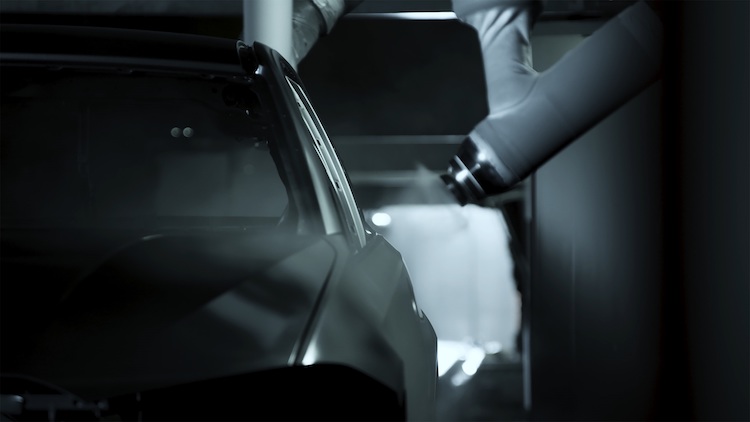BMW applies AI dust particle analysis to ‘increase paint shop quality’
BMW says it uses an “ongoing algorithm-based analysis” of dust content in vehicle paint booths and compares them to a database to predict the quality of coating it applies to cars
Artificial intelligence can bring even greater precision to controlling highly sensitive systems in automotive production, as a pilot project in the paint shop of the BMW’s Munich plant has demonstrated.
Despite state-of-the-art filtration technology, the content of finest dust particles in paint lines varies depending on the ambient air drawn in. If the dust content exceeded the threshold, the still wet paint could trap particles, thus visually impairing the painted surface.
AI specialists from what BMW calls its “central planning” and the Munich plant have now found a way to avoid this situation altogether: every freshly painted car body must undergo an automatic surface inspection in the paint shop.
Data gathered in these inspections are used to develop a comprehensive database for dust particle analysis. The specialists are now applying AI algorithms to compare live data from dust particle sensors in the paint booths and dryers with this database.

Albin Dirndorfer, SVP painted body, finish and surface at BMW, says: “Data-based solutions help us secure and further extend our stringent quality requirements to the benefit of our customers.
“Smart data analytics and AI serve as key decision-making aids for our team when it comes to developing process improvements. We have filed for several patents relating to this innovative dust particle analysis technology.”
Two specific examples show the benefits of this new AI solution: Where dust levels are set to rise owing to the season or during prolonged dry periods, the algorithm can detect this trend in good time and is able to determine, for example, an earlier time for filter replacement.
Additional patterns can be detected where this algorithm is used alongside other analytical tools. For example, analysis could further show that the facility that uses ostrich feathers to remove dust particles from car bodies needs to be fine-tuned.
The BMW Group’s AI specialists say they see “enormous potential in dust particle analysis”.
Based on information from numerous sensors and data from surface inspections, the algorithm monitors over 160 features relating to the car body and is able to predict the quality of paint application very accurately, says the company.
This AI solution will be suitable for application in series production when an even broader database for the algorithm has been developed.
In particular, this requires additional measuring points and even more precise sensor data for the car body cleaning stations.
The AI experts are confident that once the pilot project at the parent plant in Munich has been completed, it will be possible to launch dust particle analysis also at other vehicle plants.

